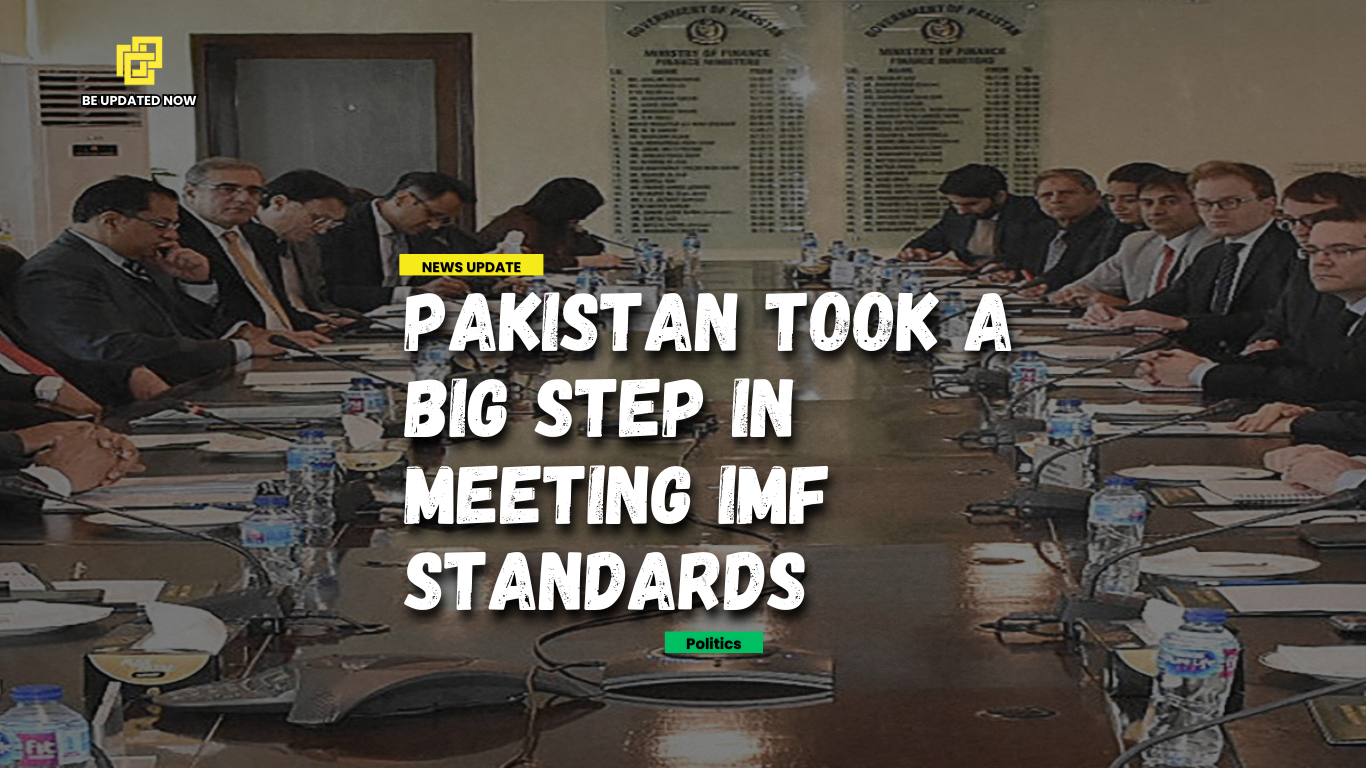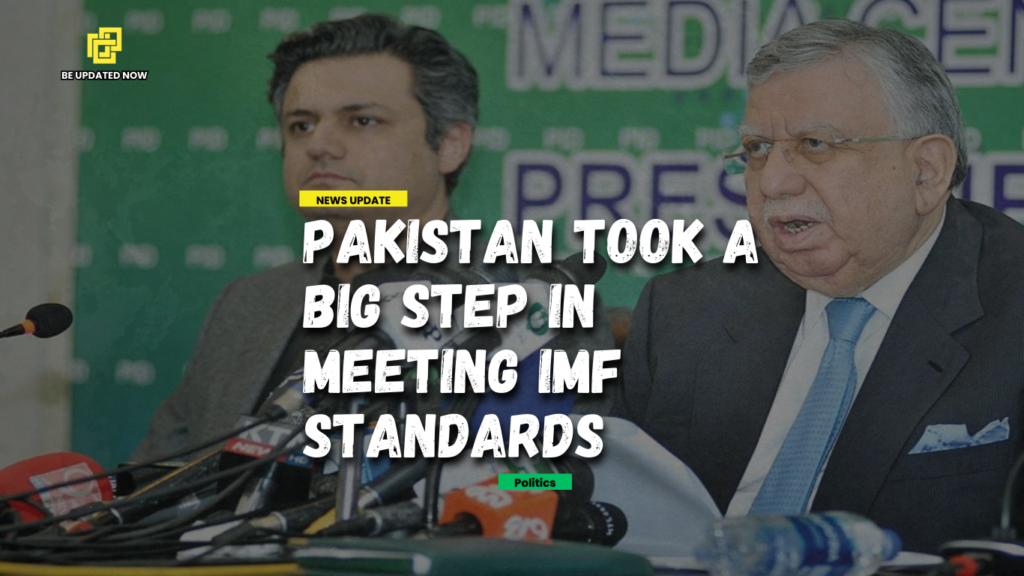
Pakistan Successfully Meets IMF Conditions for $1.2 billion
Pakistan took a big step forward when it announced that it had met IMF standards for a $1.2 billion tranche. This remarkable feat advances the nation’s economic prosperity and stability.
Pakistan has consistently addressed structural and budgetary issues, attracted foreign investment, and promoted sustainable growth via important reforms and targeted efforts.
In this captivating post, we will examine Pakistan’s achievements and improvements that have allowed it to meet IMF standards. We will also examine the immediate benefits to the nation’s booming economy.
Pakistan’s Progress towards Achieving IMF Goals

In order to achieve the goals set forth by the International Monetary Fund (IMF), Pakistan’s dedication to structural reforms has been very essential. The government has made great progress in increasing openness and accountability, which has led to notable improvements, in order to enhance the environment for conducting business. This has taken place in order to improve the climate.
The efforts that Pakistan has made to streamline regulatory procedures and remove bureaucratic bottlenecks have resulted in the country being an increasingly enticing site for investors from other countries across the world.
As a result, not only does this boost the confidence of investors, but it also helps to cultivate an environment that is conducive to the growth of the economy and the production of new employment opportunities.
Pakistan Meets IMF Criteria with Prudent Fiscal Measures and Sustainable Growth
Furthermore, As a result of Pakistan’s execution of sensible fiscal consolidation measures, the country was able to successfully meet the criteria imposed by the International Monetary Fund (IMF). The government has implemented fiscal measures that are financially responsible, such as the reduction of the deficit in the budget and the management of the public debt.
Pakistan’s economy has been effectively stabilised as a result of the country’s efforts to reduce expenditures that are not essential and to increase income production. The credibility of the nation in the international financial markets has been enhanced as a result of this, in addition to leading to an improvement in the country’s fiscal health.
Moreover, In order to fulfil the requirements of the International Monetary Fund (IMF), Pakistan’s steadfast dedication to economic diversification and sustainable growth has revealed itself to be an essential component. Investments in human capital, infrastructural development, and renewable energy sources have been given a significant amount of priority by the local administration.
Pakistan’s Multipronged IMF’s Compliance
Through the implementation of these strategic investments, the nation’s reliance on fossil fuels has been significantly decreased, and new opportunities for economic expansion have been made available. Significantly, the emphasis placed on the development of human capital has led to the enhancement of educational and healthcare systems, so establishing the groundwork for a society that is both more wealthy and more welcoming to people of all backgrounds.
Additionally, Pakistan’s effective fulfilment of the terms imposed by the International Monetary Fund (IMF) may be attributed, in part, to the outstanding execution of social safety nets and programmes that alleviate poverty. Both tackling the issue of income disparity and guaranteeing the welfare of disadvantaged parts of society are priorities that the administration has acknowledged as being important.
It has been possible for Pakistan to efficiently support individuals in need with financial help, healthcare, and education via the implementation of certain programmes and initiatives, such as the Ehsaas Programme. For marginalised groups, this strategy has not only resulted in an improvement in their level of life, but it has also contributed to the development of a feeling of social togetherness and peace.
Moreover, Pakistan’s determined attempts to improve its relations with other countries have been very important in meeting the IMF’s requirements. The government has worked hard to lower the current account imbalance and increase the number of goods it exports.
Pakistan has made its economy more stable by encouraging exports, bringing in foreign direct investment, and expanding its trade partners. These steps have not only made the country more competitive on the world market, but they have also helped its balance of payments.
Conclusion
The fact that Pakistan met the IMF’s requirements and was able to get a $1.2 billion tranche shows how committed the country is to economic growth and security. Pakistan has set itself up for long-term growth by implementing structural changes, consolidating its finances, diversifying its economy, building up social safety nets, and making its external sector stronger.
Meeting the IMF’s requirements will have many good effects, such as boosting investor trust, creating jobs, lowering poverty, and making life better for everyone. As Pakistan builds on these successes, it will be able to reach its full economic potential and become a world-class country that is doing well.
Read Latest Imran Khan Writes a Letter to IMF
Join Our Instagram Community



Weather in Karachi: Everything You Need to Know About it